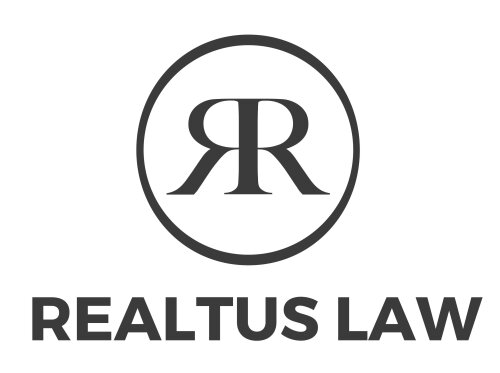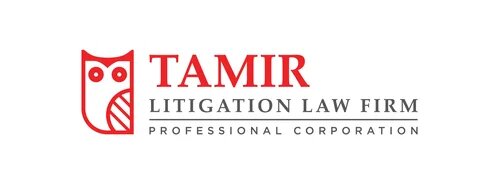Best Government Contract Lawyers in Richmond Hill
Share your needs with us, get contacted by law firms.
Free. Takes 2 min.
List of the best lawyers in Richmond Hill, Canada
About Government Contract Law in Richmond Hill, Canada
Government contract law in Richmond Hill, Ontario, deals with the legal framework governing agreements between private entities and local, provincial, or federal government bodies. These contracts cover a wide spectrum of goods and services, from construction and IT services to supply chains and consulting. The contracting process is designed to ensure fair competition, transparency, and value for taxpayers, and it is subject to specific legislative and regulatory requirements. Understanding this specialized area of law is crucial for businesses and individuals considering doing business with the government.
Why You May Need a Lawyer
Navigating government contracts can be complex and challenging. Common situations in which you may need a lawyer include:
- Preparing and reviewing proposals or tender documents to ensure compliance with requirements.
- Negotiating contract terms and conditions to protect your interests.
- Resolving disputes regarding contract performance, payment, or deliverables.
- Challenging or defending the award of a government contract (bid protests).
- Ensuring adherence to government procurement regulations and ethical standards.
- Handling claims of breach of contract or termination disputes.
- Interpreting government-specific clauses, such as those relating to intellectual property or confidentiality.
- Dealing with audits, investigations, or allegations of non-compliance.
Local Laws Overview
In Richmond Hill, government contracts are subject to both municipal bylaws and broader frameworks such as Ontario’s Broader Public Sector (BPS) Procurement Directive and the federal Government Contracts Regulations. Key aspects include:
- Procurement Rules: Local and provincial rules require open, fair, and transparent bidding for most contracts, with clear processes for advertising, submission, and evaluation.
- Trade Agreements: Agreements such as CFTA (Canadian Free Trade Agreement) and CETA (Comprehensive Economic and Trade Agreement) impose non-discrimination and fairness in select contracts.
- Contract Formulation: Standardized contract forms are often used and may include strict compliance, reporting, and performance requirements.
- Remedies and Disputes: There are established processes for raising complaints, disputing awards, and appealing decisions.
- Ethical Obligations: All parties must avoid conflicts of interest and comply with ethical sourcing and anti-bribery laws.
- Privacy and Confidentiality: Complying with privacy laws (such as FIPPA) when handling government information is essential.
Frequently Asked Questions
What is a government contract?
A government contract is a legally binding agreement between a government body and a private party for goods, services, or works. It sets out the obligations, deliverables, and terms for both parties.
How do I find government contract opportunities in Richmond Hill?
Opportunities are advertised on platforms such as the Ontario Tenders Portal, MERX, and municipal procurement websites. Keeping informed and registering on these systems is recommended.
Are government contracts in Richmond Hill open to all businesses?
Yes, government contracts typically encourage competition and are open to qualified businesses, but specific eligibility, registration, or certification requirements may apply.
Can I challenge the outcome of a contract award?
Yes, if you believe the procurement process was not fair or did not follow prescribed rules, there are mechanisms to submit a complaint or formal bid protest within set timelines.
What are common challenges in government contract performance?
Common challenges include unclear contract terms, delays, performance disputes, scope changes, and compliance with regulatory or reporting requirements.
What risks should I be aware of before signing a government contract?
Risks include strict performance standards, financial penalties for non-compliance, detailed audit rights, termination clauses, and reputational implications if the contract is not fulfilled as agreed.
Are there special considerations for small or minority-owned businesses?
Some government contracts may include provisions or programs favoring small and diverse businesses, but it is important to check eligibility and required documentation.
How long does it take to finalize a government contract?
Timing varies widely, depending on the value and complexity of the project and the internal approval process within the government agency.
What should I do if a dispute arises during a government contract?
Consult a lawyer immediately. Usually, contracts provide processes for dispute resolution such as negotiation, mediation, or arbitration prior to litigation.
Who is responsible for ensuring compliance with privacy laws in a government contract?
Both the government body and the private contractor are responsible for compliance, including the proper handling of personal or confidential information according to applicable privacy laws.
Additional Resources
If you require more information or assistance, the following resources may be helpful:
- Legal Aid Ontario - Provides legal information and resources.
- The Law Society of Ontario - Offers a lawyer referral service and public legal education.
- Ontario Tenders Portal - Source for provincial government procurement opportunities and resources.
- Richmond Hill Procurement Services - Local guidelines and contacts for municipal contracting.
- Public Services and Procurement Canada - Resources for federal contracts and procurement procedures.
- Canadian Bar Association - Government Contract Law section for articles and further reading.
- Local business support organizations, such as the Richmond Hill Chamber of Commerce.
Next Steps
If you are considering or already involved in government contracting in Richmond Hill:
- Identify your goals, potential risks, and obligations before entering into any agreement.
- Consult a qualified lawyer with experience in government contract law to review documents, provide guidance, and represent your interests.
- Gather and organize all relevant documentation, correspondence, and records related to the contracting process.
- Be proactive about understanding your rights, duties, and options in case of disputes or issues during contract execution.
- Take advantage of local and provincial support services, and stay informed of updates or changes in procurement laws and practices.
Lawzana helps you find the best lawyers and law firms in Richmond Hill through a curated and pre-screened list of qualified legal professionals. Our platform offers rankings and detailed profiles of attorneys and law firms, allowing you to compare based on practice areas, including Government Contract, experience, and client feedback.
Each profile includes a description of the firm's areas of practice, client reviews, team members and partners, year of establishment, spoken languages, office locations, contact information, social media presence, and any published articles or resources. Most firms on our platform speak English and are experienced in both local and international legal matters.
Get a quote from top-rated law firms in Richmond Hill, Canada — quickly, securely, and without unnecessary hassle.
Disclaimer:
The information provided on this page is for general informational purposes only and does not constitute legal advice. While we strive to ensure the accuracy and relevance of the content, legal information may change over time, and interpretations of the law can vary. You should always consult with a qualified legal professional for advice specific to your situation.
We disclaim all liability for actions taken or not taken based on the content of this page. If you believe any information is incorrect or outdated, please contact us, and we will review and update it where appropriate.









